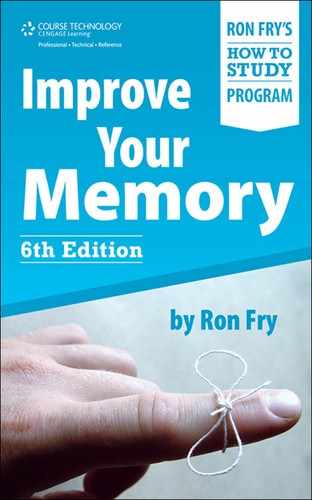Every time I had my daughter read to me when she was younger, I become aware of the difficulties of spelling in English. What’s that “k” doing on the edge of the knife, and why didn’t someone put the lights out on that “gh” in night? How come graffiti has two “f” ’s and one “t,” while spaghetti doubles the “t” (and pronounces the “gh” as a hard “g”!)?
Well, one way to win the spelling bee in your town is to have a great vocabulary, using some of the suggestions mentioned in Chapter 5. Another way is to learn the rules of English spelling, then note the rather frequent exceptions to those rules.
Many people make mistakes on words with doubled consonants. The most common quick-repeating consonants are “l,” “n,” “p,” and “s”, but “t” and “r” repeat fairly often, too. While the incidence of these doubles might seem accidental or arbitrary, they usually follow these rules.
Double “l”: Usually results from adding prefixes ending in “l” to roots beginning with the letter, and vice versa for suffixes (examples: alliterative, unusually). However, alien does not have a double “l” because it is itself a root.
Double “n”: A similar rule applies to “n”s. Double “n”s usually result from adding a suffix that turns an adjective ending in “n” into a noun (wantonness or thinness) or “-ny,” which turns a noun ending in “n” into an adjective (funny).
Double “p”s, “r”s, and “s”s don’t generally have a hard-and-fast rule, so you’ll usually have to rely on other tricks of memory. For instance, I’ve always had trouble spelling embarrassment (double “r” and double “s”) since it certainly doesn’t seem to follow the same rule as harassment (double “s” only).
In these cases, you’ll have to associate some rule with the word. When I worked as a reporter, I’d often hear colleagues answer questions about spelling in such codes. “Four ‘s’s and two ‘p’s” is the answer to “How do you spell Mississippi?” I remember the rule for the word harassment by imagining someone pushing away (or harassing) the extra “r” some part of my brain insists should be there.
Double “r”s and double “t”s and other doubles occurring (note the double “r”!) before “-ed”:
If the word ends in a single consonant (occuR, omiT).
If the word is accented on the last syllable (comPEL, reMIT).
The general rule is: “I” before “e” except after “c” or when it sounds like “a,” as in neighbor and weigh. This rule holds, with some exceptions: seize, leisure, caffeine, and the names of other chemical compounds.
Many people get thrown over words ending in “e” that have “-able” or “-ible” added to them. What to do with that final “e”? Well, here are some rules:
Keep the final “e” for words ending in “-ice,” “-ace” or “-ge.” Someone is embracEABLE and situations are managEABLE.
Drop that final “e” when it is preceded by any consonant other than “c” or “g” (unlovable).
Other rules for adding suffixes to words ending in “e”:
Retain the “e” when adding “-ly” and “-ment” (unless the word ends in “-dge.” It’s judgment, not judgEment).
Drop the “e” before adding “y” as a suffix (phony).
Drop the final “e” and add “-ible” to words ending in “-nce,” “-uce,” or “-rce” (producible, unconvincible).
Use “-ible” for words ending in “-miss” (dismissible).
The general rule of thumb is that affect is a verb and effect is a noun. Since rules are made to be broken, though, effect is sometimes used as a verb.
Its is the possessive of something (e.g., its color); it’s is used in place of “it is” or “it was” (e.g., it’s easy).
You’re is used in place of “you are” (e.g., you’re tall); your is the adjective (e.g., your grades).
If something belongs to each person, each person’s name gets the ’s (e.g., Jodi’s and Dave’s clothes, because they each have their own clothes). But if something belongs to people collectively, only the name closest to that something gets the ’s (e.g., Jodi and Dave’s house, because the house belongs to both of them).
The English language is based on Celtic, Norwegian, German, Latin, French, and several other languages. As a result, it veers from the rules fairly often. So, while these guidelines certainly will help you a great deal, sometimes you will have to rely on association and some of the other methods we spoke of in other chapters to remember all the exceptions to them.
